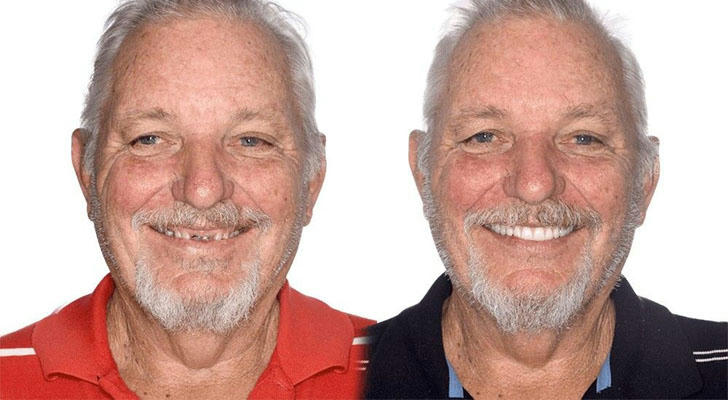Government Subsidies Free Dental Implants For Seniors
Government subsidies specifically for dental implants for seniors may vary depending on national and local regulations. In many cases, certain healthcare programs for seniors (such as Medicare in the United States or similar programs in other countries) may cover dental care (including procedures such as dental implants). Seniors are advised to check with their local government healthcare agency or dental insurance provider to find out the specific insurance coverage they can get for dental implants or other dental procedures. In addition, dental clinics or healthcare providers may provide information about available financial assistance programs or subsidies that can help seniors in need pay for dental implants.

I.Innovative Ways to Get Dental Implants for Free for Seniors
Traditional dental implants can cost up to $6,000, but thanks to new government subsidies and specialized programs, dental implant services are becoming more accessible to seniors, and often for free. Seniors are using unconventional methods to get dental implants for free!
1. Government Programs: In the United States, seniors can get financial assistance for dental implants through government-supported healthcare programs such as Medicare or Medicaid. Typically, these programs provide funding if dental implants are considered a medical necessity (such as after an injury or as part of reconstructive surgery after cancer treatment). However, eligibility criteria can be very strict, and not all seniors qualify.
2. Dental Schools: Dental schools are a valuable resource for seniors seeking affordable dental implants. These institutions often offer dental services at significantly reduced prices, performed by dental students under the close supervision of licensed dentists. This arrangement not only provides students with hands-on experience, but also allows seniors to obtain dental implants at a lower cost than in private practice.
3. Nonprofits: Several nonprofits and charities focus on providing dental care to seniors, often based on income, health status, or other qualifying factors. Entities such as Donated Dental Services (DDS) and local community health organizations may offer free or low-cost dental implants to qualifying seniors to meet the needs of those who are financially challenged or lack insurance coverage.
4. Clinical Trials: Seniors have the opportunity to receive free or low-cost dental implants by participating in clinical trials, which are often conducted by dental schools, research institutions, or companies developing new dental technologies. While there are eligibility requirements and potential risks, participating in clinical trials can provide access to cutting-edge dental care.
5. Discount Dental Plans: Certain private companies offer discount dental plans, where members receive discounted dental services from a network of dentists. These programs can provide significant savings on dental implants and other procedures, making them a more affordable option for seniors.
6. Veterans Benefits: Veterans in some countries can receive dental care, including dental implants, through government programs. In the United States, the Department of Veterans Affairs (VA) provides dental care to eligible veterans, which may cover comprehensive procedures such as dental implants, depending on individual circumstances and eligibility.
7. Health Savings Accounts: (HSA) or Flexible Spending Accounts (FSA) Although HSAs and FSAs do not provide free dental implants, they can provide financial relief. Seniors with these accounts can use pre-tax dollars to pay for dental implants, making the procedure more affordable.
8. Community Health Centers Federally funded community health centers in the United States provide a variety of medical services based on income, including dental care. These centers provide an affordable option for seniors who need dental implants but face financial challenges.
9. Insurance Negotiation: Seniors can negotiate coverage with private dental insurance companies if dental implants are considered a medical necessity. While success is not guaranteed, providing medical evidence and a reason for the implants can result in partial or full coverage.
10. Payment Plan: Given the financial challenges faced by seniors, some dental offices offer dental implant payment plans. These plans allow patients to spread the cost over a longer period of time, making dental implant costs more manageable and affordable for people on fixed incomes.
II.Case
Take Mary, a 68-year-old woman with multiple missing teeth due to diabetes and limited financial resources. At the suggestion of a friend, she consulted with a local dental school and learned that students were conducting related programs. In this way, she successfully completed dental implant surgery for less than $500. Mary also found that the community health center provided a subsidy program to help her pay for additional dental care. Through these resources, she not only received the medical services she needed, but also reduced financial pressure.
III.Summary
Although seniors face challenges in obtaining dental implant services, they can find solutions that work for them through a variety of channels, including government subsidies, dental schools, and nonprofit organizations. Understanding these resources and actively seeking help are the keys to achieving free or low-cost dental implants.
